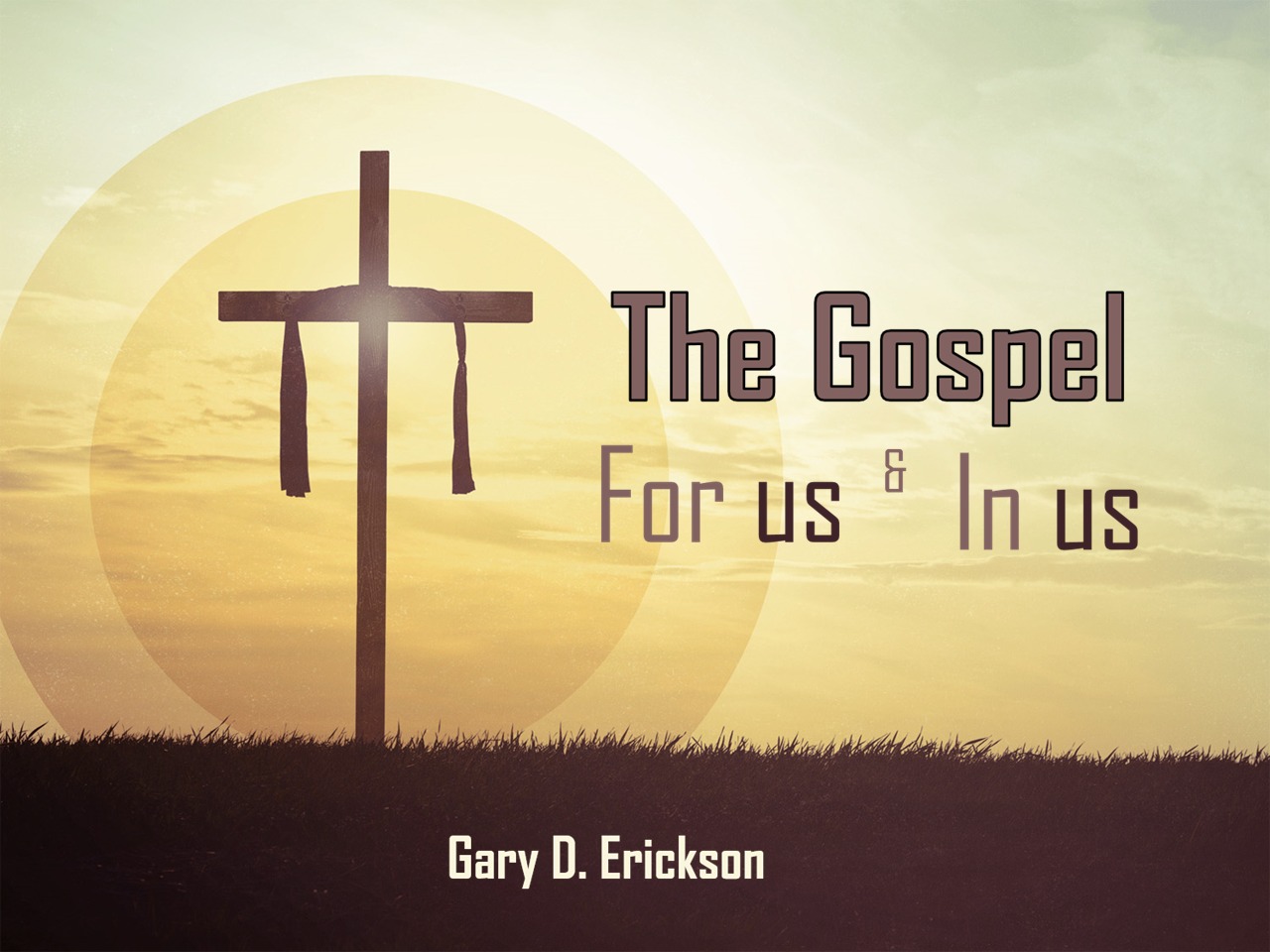“When considering the gospel, we must accept the objective work of the Lord for us. The gospel must be accepted as a historical fact on the basis of God’s Word. Even if there is no emotion when we first consider the gospel, we must make a deliberate decision of the will to believe and accept the work of Jesus as a complete work of redemption.”
To View the Entire Article, Click Here
To Download the Article Directly to Your Computer, Click Here
To View the Outline, Click Here
To View the PowerPoint, Click Here
By Gary D. Erickson
There are two aspects of the gospel. First, is the work God has done for us and, second it is the work He has done in us.
The gospel is succinctly defined by the Apostle Paul in 1 Corinthians 15:1-4. According to this passage of Scripture, the gospel is the death, burial, and resurrection of Jesus Christ. Although the gospel has many ramifications, these three events define the “gospel in a nutshell.”
We should notice first of all that the gospel is the experience of the Lord Jesus Christ. It is historical in nature, recorded in the greatest history book in the world, the Holy Bible. It was a very physical event that involved great physical suffering, real blood, the agony of rejection, and the stark and frightening reality of death. The burial and embalming of the body of Jesus was a very literal event. The resurrection was a miraculous event and yet it is a physical and historical fact.
It is difficult for the human mind to comprehend the magnitude of what Jesus did at Calvary. The God of heaven came to earth, visiting fallen flesh and even becoming one of us, and then He laid down His human life for us. The gospel transcends every event in the annals of human history. No man in history has ever raised himself from the dead—only our Lord Jesus Christ. The work He did is complete. Forever the sin problem has been solved. We cannot add one thing to the perfect and complete work of our Savior. The work of Jesus is so entirely perfect that it is the very substance of the gospel. Our Christian experience is actually the “fruit of the gospel.” Regardless of the intensity of our own personal experience, the work of the Lord Jesus Christ surpasses it in magnitude. Without His work for us, we can expect no work to be done in us.
The death, burial and resurrection of Jesus was vicarious in nature. He did not suffer for personal gain, but He suffered that we could have eternal life. The gospel is a beautiful picture of love and compassion. It is not just beautiful rhetoric full of careless promises and romantic nothings. Jesus proved His amazing love by submitting to the executioners when He could have defended Himself. “Greater love bath no man than this, that a man lay down his life for his friends” (John 15:13).
When considering the gospel, we must accept the objective work of the Lord for us. The gospel must be accepted as a historical fact on the basis of God’s Word. Even if there is no emotion when we first consider the gospel, we must make a deliberate decision of the will to believe and accept the work of Jesus as a complete work of redemption. This must provide a basis for any experience we receive. Subjective experience that does not stand on the finished work of the Lord Jesus Christ is a spurious experience. Regardless of the religious fervor, it is still subject to the scrutiny of God’s Word. On that basis it stands or falls.
The second aspect of the gospel that we need to consider is God’s work in us. This initial work of regeneration, which gives us spiritual life, is the fruit of the work of Jesus. Without the redemptive act of our Savior, our experience could just be another sensation.
Everyone has had experiences of a mystical nature—a dream that came true an intuition that turned out to be valid, a sudden feeling of awe and wonder at nature, or a feeling so profound that it defies verbal description. All these unusual experiences are noteworthy, but the greatest of all experiences is the salvation experience. There is no act greater than the death, burial and resurrection of Jesus Christ. Our experience with Jesus Christ in applying and obeying the gospel should not take second place to any other phenomenon in our life.
Our salvation experience should be a reflection of Jesus’ experience. Jesus died, we must die. Jesus was buried, we must be buried. Jesus rose from the dead, we must rise from the dead.
To View the Entire Article, Click Here
To Download the Article Directly to Your Computer, Click Here



